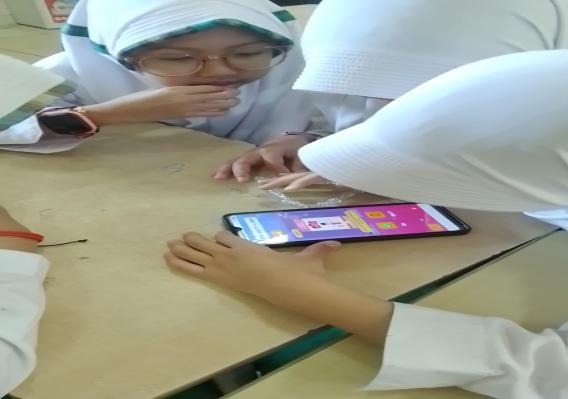“Do and Don’t”: UNY Students Develop a Sexuality-Education Game to Prevent Violence from an Early Age

Sexual violence against young children is becoming an increasingly serious concern. In response to this challenge, a group of UNY students developed an educational innovation in the form of a sexuality-learning game application called “Do and Don’t”. The innovation is designed to instil an important understanding of body boundaries and preventive actions against sexual violence starting from elementary-school ages. Universitas Negeri Yogyakarta The development team, led by Suci Rohmawati (PGSD class of 2021), was inspired after observing the minimal understanding among children about their bodies and self-protection while taking part in the “Kampus Mengajar” programme. “They didn’t know which parts of their body may or may not be touched, nor how to respond if they experienced violence,” she explained.
Together with five students from different faculty backgrounds—Vina Wijayanti (PGSD), Ardelia Apriliani and Akmal Maulana Kismoyo (Informatics Engineering), and Nabila Putri Bilqist (IPS Education)—the team submitted their innovation through the Student Creativity Programme (PKM). Originally the platform appeared as a website, but now it has been developed into an application. The materials are presented in a visual and interactive format: children learn to recognise body parts that may and may not be touched, maintain personal hygiene, and understand the steps to face unsafe situations. After the material, users are invited to play pictorial quizzes to test their understanding in a fun format.
Not only is there the application, but the team also prepared printed modules in simple language and visuals, which can be used by teachers as classroom guides or by students for independent reading. Although not yet available on the Play Store, the application has already been trialled in several elementary schools, such as SD Al-Azhar and SD Bumijo, and used by students during field placements (KKN & PPL) in various regions including Gunungkidul. Student response was very positive: “The children feel like they are playing, yet they are learning something important about protecting themselves,” said Suci. However, the development of the platform is not without challenges: technically, the app programming requires high precision; distribution is still via software files; and some schools have limited access to devices. The trial often had to be conducted in groups to still reach students with limited facilities. Even so, the game-based approach has proven effective: “Sensitive material can be accepted by children in a lighter, non-scary way,” she added.
This innovation underscores the importance of healthy, age-appropriate sexuality education as a pressing need—not merely a topic of discourse. With the right approach, this education not only protects children from the risk of violence but also fosters a culture of mutual respect and empathy from an early age. The team hopes the initiative will continue to develop and be supported by educators, parents, schools, and the government so that more children in Indonesia are protected and ready to safeguard themselves in an increasingly complex era.






